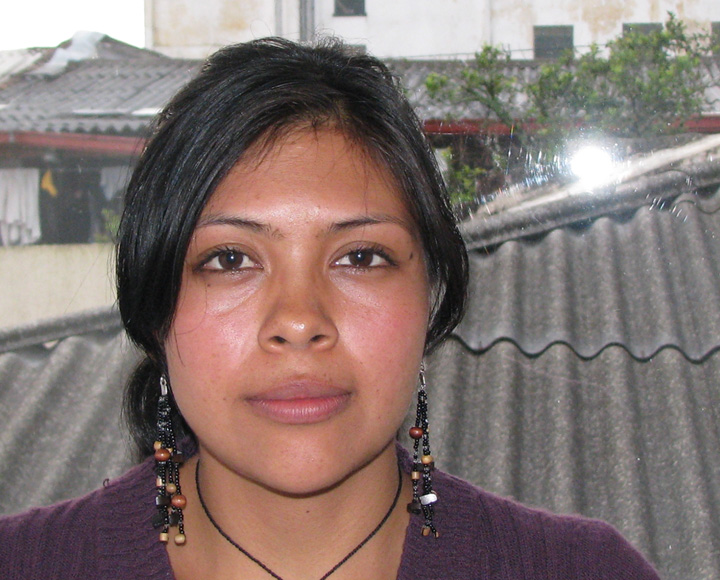

Assessing Climate Change Vulnerabilities in Colombia’s Indigenous Communities

Over 3,000 metres above sea level in the mountainous south western region of Colombia, the indigenous community of Paletará is actively organizing around an issue that is inextricably linked to their livelihoods; the environment.
Carina Bolaños, a 24 year old girl from Paletará, is spending a lot of time these days learning about the potential impacts of climate change on the livelihoods of her community of 520 families. She is the Coordinator of a group of young community workers that are raising awareness and gathering information on land and water use, levels of food security and the extent of vegetation cover particularly as they relate to climate change risks and vulnerabilities. Carina talks about her work in Paletará, what motivates her and what she hopes for.
“We are four indigenous youth that have been chosen by our community to play an active role in conducting local assessments on productive uses of the land, informal trading, food security, water resources and forest cover making them available to our indigenous assembly in order to discuss and validate. I want to use this information to help improve the lives of my people, reduce our poverty levels and ensure that we have secure nutrition” says Carina.
“We need to have good information and be part of the decisions that are taken about our surrounding environment” she pauses to think for a minute, “it goes beyond climate change; it’s about our right to a better life”. Paletará is one of four indigenous communities involved in the MDG- F financed programme “Integrated Ecosystems and Adaptation to Climate Change in the Colombian Massif”, that is working to strengthen policies on environmental management and climate change adaptation; integrating them into poverty reduction strategies. Although the programme is directly targeting MDG 7 on environmental sustainability, issues of governance and poverty are at the heart of the interventions. Carina is one of 20 community workers active at the ground level of the programme working to secure the active involvement of the community in defining local priorities and ultimately in the construction of public policies.
“Something new that we are working on is trying to stimulate women’s participation in decision making within our community. It’s difficult” says Carina, “but important. We have already organized together with the MDG-F programme team, sessions to identify and overcome some of the obstacles that our women face.” Apart from her work with the MDG-F programme, Carina is in the process of obtaining a Bachelor’s Degree in Education from the University of El Cauca and is the mother of two small children. When asked what motivates her and what she hopes for Carina said: “I want to learn from my land and from my people and help to find solutions that address our priorities. I want to help to increase education levels and livelihoods in our community. I think a lot about the children here... they are the present and the future of our community and I want to help to give them a better future with more opportunities. This would be a contribution both to my people and to me. Now that I am working with this programme I feel I have the responsibility to do a really good job. I have been chosen by my community and I am involved with the United Nations and I have to make my people proud.
As indigenous people we are different to the other citizens of this country and we want to assert our identity that is so often obscured. We have a clear way of thinking and a clear vision and if we stick to a clear path we will succeed in achieving our goals”.
The MDG-F joint programme on climate change adaptation in the Colombian Massif has brought together four UN Agencies, Government Ministries, Universities and indigenous and farmer communities in a combined effort to improve policy and practice on climate change adaptation as it relates to poverty reduction.